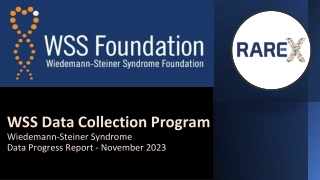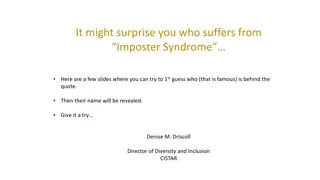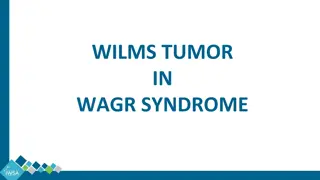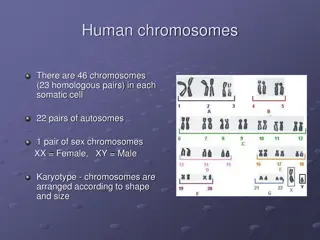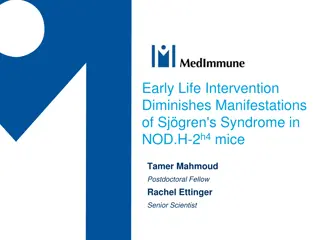National Lynch Syndrome project Team Update
Lynch syndrome is a hereditary condition linked to various cancers. Learn about its impact, testing, and treatment options like immunotherapy that can enhance patient outcomes.
Uploaded on Mar 05, 2025 | 0 Views
Download Presentation

Please find below an Image/Link to download the presentation.
The content on the website is provided AS IS for your information and personal use only. It may not be sold, licensed, or shared on other websites without obtaining consent from the author.If you encounter any issues during the download, it is possible that the publisher has removed the file from their server.
You are allowed to download the files provided on this website for personal or commercial use, subject to the condition that they are used lawfully. All files are the property of their respective owners.
The content on the website is provided AS IS for your information and personal use only. It may not be sold, licensed, or shared on other websites without obtaining consent from the author.
E N D
Presentation Transcript
National Lynch Syndrome project Team Update Sarah John and Siobhan John SWGMSA Nurse facilitators
Why worry about Lynch? At least 260 endometrial cancers are caused by Lynch syndrome each year (The Eve Appeal) More than half of women with metachronous colorectal and gynae cancers, present with endometrial 1st (Lu et al, 2005) 175,000 people have Lynch syndrome in the UK, less than 5% know this (Bowel Cancer UK). NICE recommends testing at diagnosis
How does Lynch occur? A germline pathogenic mutation occurs in 1of 4 DNA mismatch repair genes resulting in a dMMR gene. It is autosomal dominant, so a child of a lynch parent has a 50:50 chance of inheriting the condition as well.
LS predisposes to certain cancer types: The main concerns are: Colorectal 20%-80% risk Endometrial 24% - 51% risk Other less frequent cancers: Ovarian 2%-17% (av 8%) Urinary tract 1%-18% Gastric 1%-13% Small intestine 1%-6% Hepato-biliary and pancreatic 1%- 4% Sebaceous gland (and adenoma) 1%- 2% Central Nervous System 1%-3%
Incidence of endometrial and ovarian cancers Endometrial Ovarian Normal 2% 2% MLH1 34% 11% MSH2 51% 17% MSH6 49% 11% PMS2 24% 2%
When should we test? dMMR can affect cancer treatment options, certain tumours are more responsive to particular chemotherapy agents as well as new immunotherapy drugs called check point inhibitors. It is important that the initial tumour test is done in time to inform treatment options
How do checkpoint inhibitors work? Checkpoint proteins are found in T cells in our immune system. A cancer cell makes high levels of the proteins which switch off the T calls when the should be fighting cancer. Checkpoint inhibitors stop the proteins on the cancer cells from pushing the stop button. A GAME CHANGER!
Our Role Audit the current provision in all trusts to highlight good and bad practice Support trusts to ensure patients are routinely tested for Lynch at diagnosis. Ensure patients are on the correct surveillance pathway and are added to the regional database.
https://rmpartners.nhs.uk/lynch-syndrome-early- diagnosis-pathway-endometrial Siobhan.John@nhs.net Sarah.John@nbt.nhs.uk
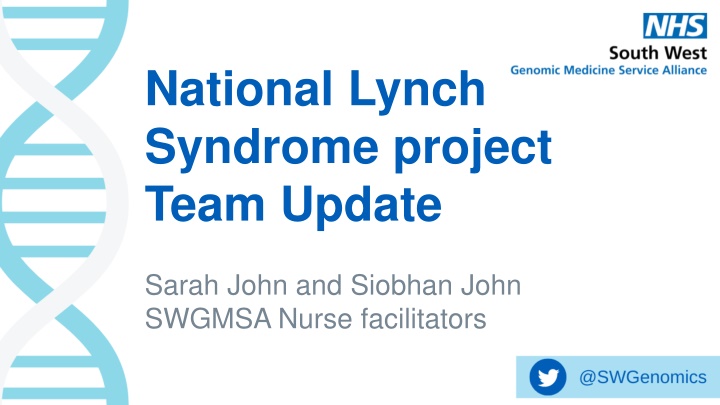

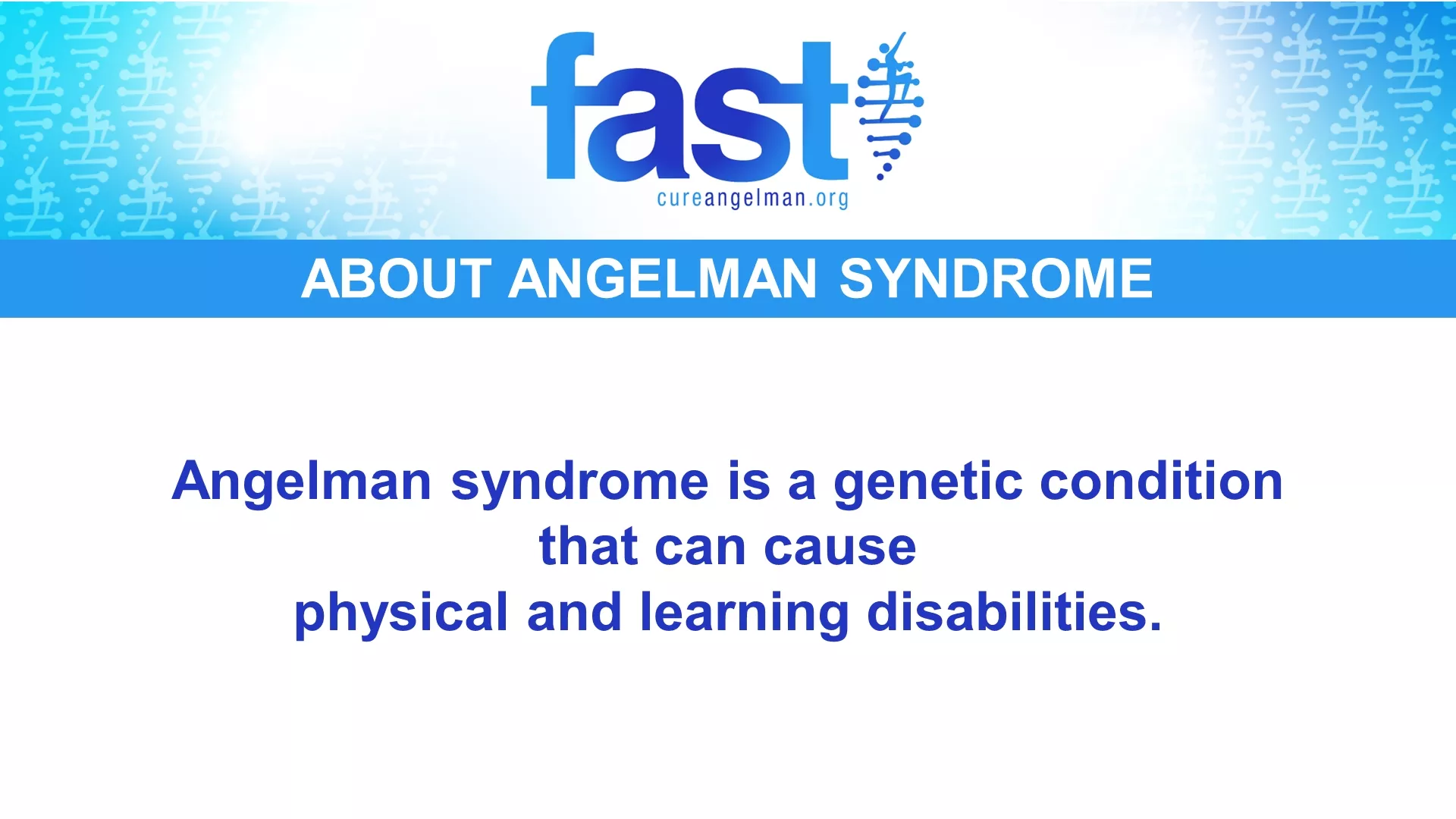
![❤[PDF]⚡ Zee Zee Does It Anyway!: A Story about down Syndrome and Determination](/thumb/20462/pdf-zee-zee-does-it-anyway-a-story-about-down-syndrome-and-determination.jpg)
